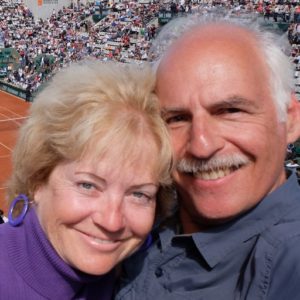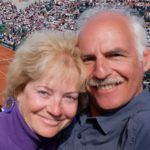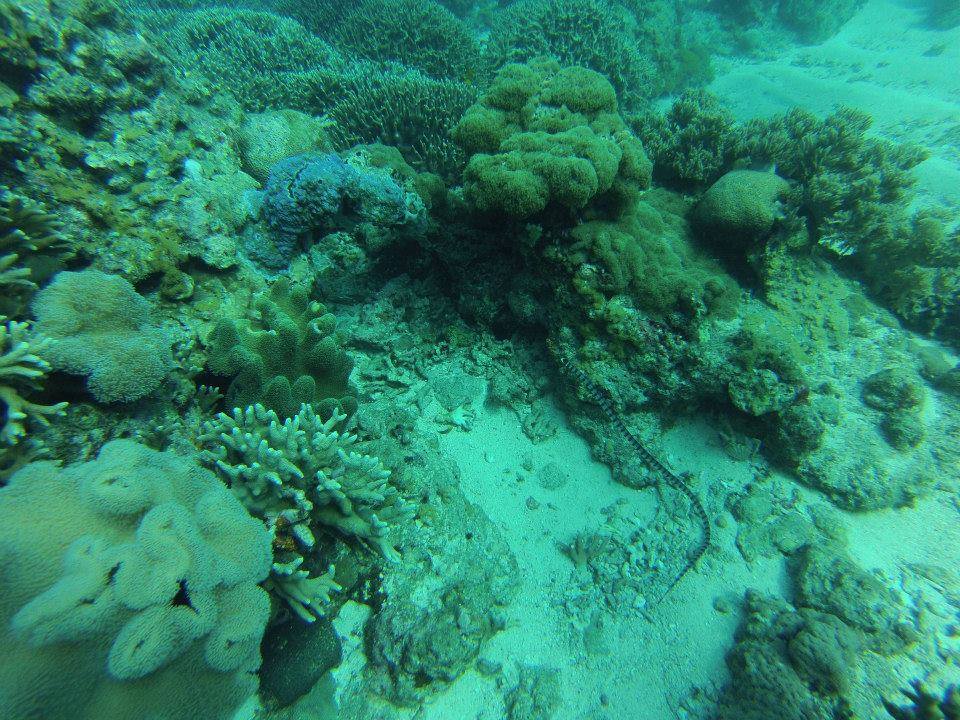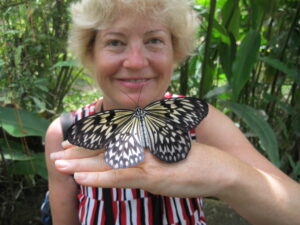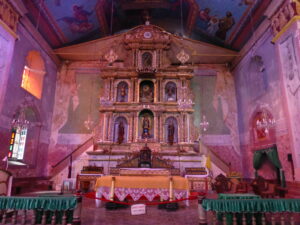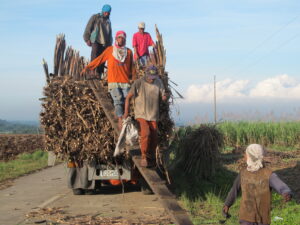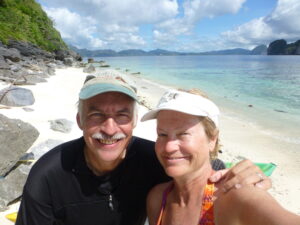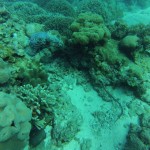
Note: Each night at El Nido Miniloc Resort we were given a one page story that sought to educate us, in a fun way, about the fragile environment we live in, how we impact it, and what we can do to minimize or eliminate the negative impacts. These stories are very touching and helpful. This one on coral is the first of two we would like to share…
Being a coral isn’t a walk in the seagrass bed, you know. The spot you decide to settle on after floating in the water as a larva will be your home for the rest of your life. Talk about a life-changing decision! And after choosing that one particular spot, I have to stay there for the rest of my life. Do you realize how boring that could be? If my neighbor is another coral, I’d have to put up with that neighbor for years and years and years. Let’s not forget about having to defend my space against that same neighbor. And since I can’t move, I have to endure the parrotfishes that insist on nibbling on my polyps (Shoo Polly! Shoo!) And finally, something that most people don’t realize: since a coral lives for years, decades, potentially a century or more, we have to watch the world around us change.
I settled here in Bacuit Bay, El Nido when the waters were clear, the fish were plentiful, and life was quieter. Somehow, I managed to not get eaten by the fishes and survived the first few years. I grew and grew and grew, helped by the right amount of sunshine and nutrients from the water. I lost some polyps to the fishes, but I grew stronger still. I bore witness to the influx of fishers to Bacuit Bay from other parts of the Philippines. These fishers took more and more fish from the bay, which wouldn’t have been so bad (no more nasty parrotfishes scraping off pieces of me) if not for the dynamite they used to do it. You could hear the blasts happening even more than a kilometer away. The blasting eventually stopped when part of the bay was declared a marine reserve. Then there were also the loggers, who removed the trees that held together the soil on the hillsides. I was lucky enough to survive the torrent of silt rushing into the bay whenever it rained because I was too far away from the river mouth. The other corals weren’t as lucky though and were smothered by the silt. The logging stopped when scientists proved that the community could earn more money from tourists than from logging.
Ah yes, I forgot to mention the tourists. It was a bit strange at first, having humans with their funny masks starting at me from time to time. They were silly though – some of them though that I was a weirdly-shaped rock! For the record, I am not a rock. I am an animal! Because they thought that I was just a rock, they kept on stepping on me to rest whenever they got tired from swimming. Good thing that they stopped once their guide told them that stepping on me could kill me. A lot of the tourists also thought that the fishes were more interesting than me. Hmph! Little do they know that, without me, there would be no fishes, because I serve as both habitat and food for the fishes. So there!
After decades of watching the world around me change, I have had both the pleasure and the pain of seeing the best and the worst of the human race, of them destroying my home just to catch a few fish, but others have brought in solid white stars where new corals can grow. Some have broken off pieces of my neighbor to display in little glass tanks, but others have stopped their fellow humans from harming me using gentle works and education. I hate to admit it, but my survival will depend on what the humans decide to do. I can only hope that I’m included in the future they envision for themselves.
